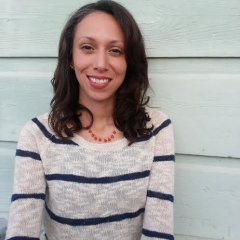
Naomi Doerner is Executive Director of Bike Easy, an Alliance member organization in New Orleans, LA.
In 1776—238 years ago last week—America’s Founding Fathers signed the Declaration of Independence, a document that proclaimed autonomy from Great Britain.
“We hold these truths to be self-evident, that all men are created equal, that they are endowed by their Creator with certain unalienable rights, that among these are life, liberty, and the pursuit of happiness.”
Since our Declaration of Independence was proclaimed, however, it has taken monumental efforts of tireless activists—from abolitionists to suffrage and women’s rights advocates to civil rights and social justice leaders – to demand the recognition and advancement of rights for all Americans. While hard-won amendments to our Constitution have expanded the protections of our rights, the interpretations of these laws at the highest levels of our legislative and judicial branches are still mostly made by an all white male contingent.
Last week, we celebrated the 50th anniversary of the Civil Rights Act, which outlawed discrimination based on race, color, religion, sex, or national origin. I reflected upon this great moment in history as I attempted to reconcile a recent Supreme Court of the United States ruling that allows corporations to deny reproductive health coverage to women employees based upon the religious beliefs of the individuals that operate said companies. It’s evident that we have come a long way in advancing the rights of people, but we still have a long march ahead of us to extend rights to all people and to protect our rights.
As a first-generation Honduran-Cuban American woman, born a little over a decade after the Civil Rights Act took effect, I often think about how privileged my life experience has been than that of my mother’s, a non-white, non-American born woman. Times are, no doubt, quite different now from when she immigrated here. On the other hand, as a professional urban planner and an advocate for equity through active transportation that is living and working in New Orleans and the Deep South, I know that progress towards equity has been too slow.
At this year’s Alliance for Biking & Walking Leadership Retreat, I invite you to join me and other local and national advocates as we look back to move forward during the Women and Inclusion session and throughout the gathering. Being advocates for active transportation in our diverse communities, it is important for us to acknowledge that our history has yielded varied experiences, among different people, in different places. Additionally, as demographics change – the U.S. Census Bureau predicts that by the end of the decade, no single racial or ethnic group will represent a majority of kids under 18 [1] – we must be willing and able to address the changing needs of a more diverse population.
As such, the Women and Inclusion session will help us build our capacities by allowing us to engage in constructive and facilitated discussions about our history, experiences, and the legacy of power structures. We will also share stories about advocacy wins and defeats that were affected by the perception of inclusion and equity of a project or campaign.
More details about the Women and Inclusion session will available in the coming weeks. For now, sign up to join me and advocates from around the country at the Alliance for Biking and Walking’s Leadership Retreat.
See you there!
[1] New York Times, "Census Officials, Citing Increasing Diversity, Say U.S. Will Be a ‘Plurality Nation’"

